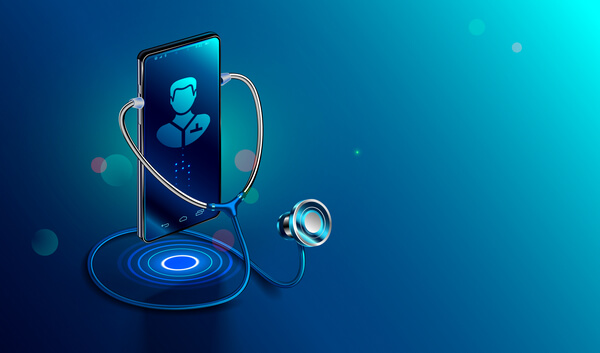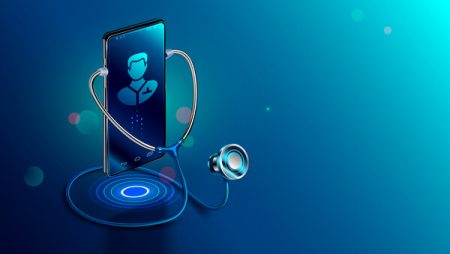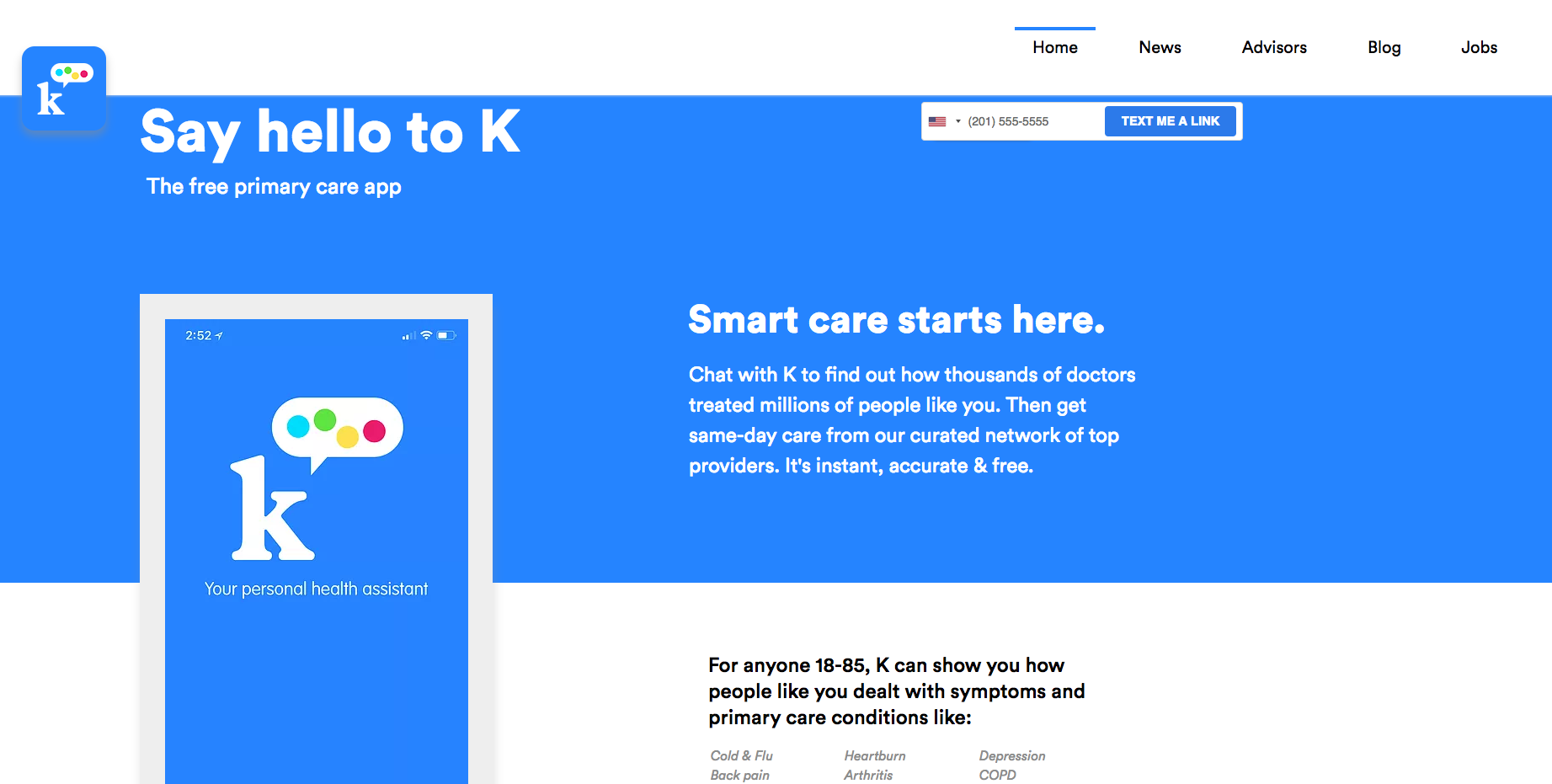



Get new exclusive access to healthcare business reports & breaking news




Artificial Intelligence start-up, Kang Health, has received $12.5 million in new funding for their AI powered healthcare app, K.
K is a free, HIPAA-compliant AI healthcare app (available on both iOS and Android) which collects anonymized information from users about their medical background and chronic conditions.
By analyzing data from hundreds of thousands of patients in their anonymized database, the app uses Artificial Intelligence to provide users insights and tips on how to better manage their medical conditions.
For example, if a user were to log a complaint in K about elevated blood pressure, the app uses that information in combination with gender, age, and the data from over 1 billion verified sources, to provide possible explanations as to why they may be experiencing those symptoms.
The app is free for everyone to download and use. However, K has been able to monetize the application by allowing users to share their data with care providers and book doctor’s appointments. Doctors and clinics, in turn, pay for each K lead secured.
K Health has received funding from Mangrove Capital Partners, Lerer Hippeau, Primary Venture Partners, BoxGroup, Max Ventures, Bessemer Venture Partners, and Comcast Ventures, among others. K Health was founded in 2016, operates in the New York City area and Tel Aviv, Israel.


The K app markets itself as a healthcare app that establishes a personal relationship with users by asking simple questions about their condition. K’s key selling point –– translating complex ideas and medical jargon into actionable advice for its user base.
The company claims that its Artificial Intelligence is constantly adapting to new data being collected, while cross-checking all user inputs against its database of +1B documents including physician’s notes, prescriptions, lab results, and medical records.
The idea behind K is that the healthcare AI-powered app will eventually learn how to help its users directly (the self-service model) or advise them to consult with a medical professional who can provide the care they need.
As reviews in the Google Play store show, users’ opinions vary when it comes to how useful the app is from a content perspective versus its overall look and feel. Some users have commented on the interactive nature of the app while others complain that the lively, animated features are inappropriate for an app that addresses matters concerning health.
It is worth noting that the company has been very responsive on Google Play, responding to virtually every comment, positive or negative. And, the team has consistently asked for feedback on how to improve user experience, putting K in an excellent position to innovate quickly based on user comments.
K Health has a noble mission and is trying to solve a problem hundreds of millions of users deal with every day. In America alone, more than one hundred million people research their symptoms online, every year. Solidifying the need for a simple and intuitive mobile app that can quickly produce insights about specific symptoms, and if needed, connect users with medical professionals.
But K Health faces another challenge. It has launched a product, in an increasingly oversaturated market of self-help medical apps. A problem, that is only compounded by a decrease in trust from users who feel these tools are not meeting expectations.
As early as 2015, apps like Doctor on Demand, Teladoc, and Amwell received acclaim for allowing users to quickly reach a doctor by phone while avoiding waiting rooms at traditional hospitals. However, that same year, a survey conducted by researchers from NYU Langone Medical Center found that 46 percent of users questioned, admitted they were no longer actively using these health apps.
K Health CEO, Allon Bloch, says “physicians have found it useful in helping confirm diagnoses and increasing the throughput of patients.” This is critical because the technology behind the app enforces a continuous feedback loop. In other words, K Health doesn’t only learn from third party platforms and its own data set, it also works with physicians who can provide feedback to K Health on potentially faulty diagnostics, thus encouraging a process of continuous improvement.
As with any technology, and especially as a healthcare AI startup, K Health will experience ups and downs and potentially negative feedback from its users.
But have no doubt: K Health is on the right side of history.
Creating a solution that helps users get insights into their conditions and even seek medical attention, could not only improve quality of life and the quality of medical care provided, but potentially save lives.
While there may be some growth pains along the way, K Health is certainly one of the most innovative healthcare AI startups today.
Interested in reading more about other healthcare AI startups? Check out our coverage of Verge Genomics and Hu-manity.